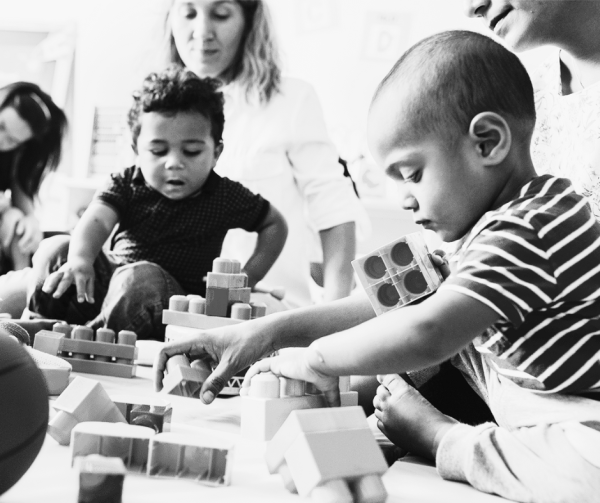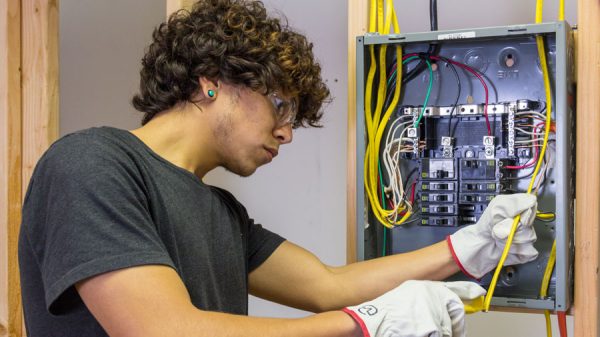Gifted programs and their negative effects
Honors and gifted coursework may sound like the path to success, but at what cost?
January 23, 2022
For anyone who has been a part of a gifted or honors program, you would probably agree that you were pleased to be treated as an intelligent student and, at first, enjoyed the challenges the program brought. Though, now, such programs seem to have done more bad than good for everyone they influenced.
In many ways, gifted and honors programs have shaped students’ social lives, family lives and academic experiences. Many students who are deemed to be gifted at a young age have high expectations for themselves which could lead to skewed views on grading.
Marley Stutzman, an RV sophomore who was in the gifted program at Lumberton Middle School, and Bobby’s Run Elementary School, stated that the program did indeed skew her opinions on what is considered a good grade.
“I put a lot of stress [on myself to] get all As in middle school and to be the best [academically],” she said.
Personally, this holds true. I have always considered an A+ to be a good grade, an A to be adequate, an A- to be okay, a B to be disappointing and anything lower to be a failure when considering my personal grades. This contrasts greatly with standard grading: A is excellent; B is good; C is adequate; D is the minimum to pass and F is a fail.
These skewed views of acceptable grades can lead to both positive and negative outcomes; however, more likely is that high expectations can lead to overthinking and unhealthy perfectionism in order to continue to receive high marks for the work.
High expectations can lead to overthinking and unhealthy perfectionism in order to continue to receive high marks for the work.
Later in life, after the program has ended in high school, perfectionism and studying may become a challenge to gifted students who are used to challenging work and material coming easily to them. As gifted students are tested at young ages, usually between first and fourth grade, they were likely noted for their ability to pick up and apply information without the learning curve. In this situation these gifted students would be praised for their natural intelligence and would likely not develop useful study habits.
This can be problematic in terms of building important work ethic and habits. According to Education Corner, a parent resource for navigating through public education, “some gifted kids don’t learn to work hard because tasks come easily to them at a young age. As they grow older and work becomes more difficult, they have not established a positive work ethic.” Education Corner notes that “this certainly does not apply to every child.”
I, again, strongly relate to this. I felt that I never needed to study or prepare for assignments, quizzes or tests in elementary school, nor the first two years of middle school. When work began to be more difficult, I assumed that I was no longer smart and there wasn’t anything I could do to change that; the only way I knew how to study was to reread whatever we learned and hope it sank in.
As I continued to just wing it, in terms of tests, my grades stayed relatively high (a reward I didn’t necessarily deserve from my lack of proper effort). Along the same lines, I found myself quickly giving up on some things I deemed too difficult without putting in much effort.
The same Education Corner article summarizes this situation: “A child may also expect they can accomplish tasks easily because they have been told they are gifted and beat up themselves if they have difficulty. This can lead to a situation where a student stops trying due to a fear of failure; they may only attempt tasks they know they can complete with little problem.”
It’s important to note that there are many factors that weigh into a gifted student’s standards and mental state.
Parents and/or caregivers are the most obvious factor. According to a Cornell study from 1989, gifted students whose parents used the label, “gifted,” reported adjustment difficulties more so than gifted children whose parents did not use the label. This means that parents who remind their child of their “giftedness,” unintentionally contribute to difficulties in child development.
Further, the Education Corner article notes that, “Parents sometimes push children too hard if they think they are gifted. Additionally, if parents expect a student to be able to easily complete their work, they may be unsympathetic if they struggle in a specific area.”
High demands from caregivers, whom children are meant to trust and rely on, may contribute to the second most notable factor, that being self-inflicted expectations.
“The first time I failed, truly failed [was when I] got a sixty-eight on a seventh grade science test; [I] cried for… two hours straight because I was so upset with myself,” said Stutzman. “My parents [reassured me, but] I was in the gifted program – this wasn’t supposed to happen to me. [It was] my wake-up call that being gifted didn’t mean you were perfect.”
I was in the gifted program – this wasn’t supposed to happen to me. [It was] my wake-up call that being gifted didn’t mean you were perfect.
— Marley Stutzman, sophomore
She also mentioned the other type of failure, the more unreasonable type: you get a 95 on a really challenging assessment, and then upon hearing that your friend or others in the class did slightly better, you panic. Despite it still being an excellent grade at face value, receiving a 95 can still be disappointing to people, like myself, who have unrealistic expectations for themselves due to the pressure of being labeled gifted.
Another large problem with the gifted program, partially unrelated to the previously mentioned ones, is the exclusivity of it.
The Education Corner article said, “Depending on the testing used, it may not encompass all facets of intelligence,” and that once a child is labeled as gifted or non-gifted, it is difficult to change that label at a later time.
For those who are not recommended by their teachers for testing or who do not pass the test, there may be a lot of negative reactions directed toward themselves. Fahmida Fariha, an RV sophomore, said, “It gives students who are not in the program a sense of inferiority, as though they are worse than their peers who are in the program. It… decreased motivation in some students because they had already been labeled as non-gifted.”
Additionally, for “non-gifted” students whose siblings were accepted into the program, there is a greater sense of mediocrity from the comparison.
“I was… told that I should be more like my older brother,” said Fariha. “The feeling of not being good enough is something emotionally taxing, and, as a result of this feeling along with other factors, my personality changed from that of an extrovert to one of an introvert.”
“I always felt bad when I came back from the program and people asked where I was,” said Stutzman. “I did not want to make anyone feel bad that they weren’t [part of] the program. [By] the time you were in about [fourth] grade, you were either in or out, and by… middle school… no one new was accepted in.”
Due to all of these factors, it is clear that there are many problems with the experience and effects of gifted programs. Fariha said, “Schools are meant to provide equal opportunities to all students and programs like these[,] that depend solely on whether a teacher determines them to be ‘special[,]’ take away from that.”












